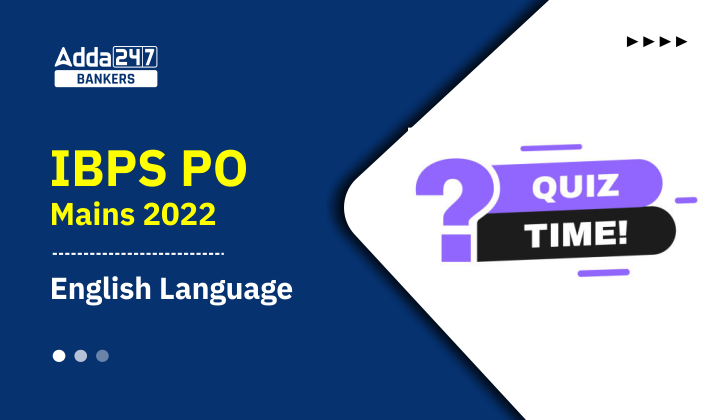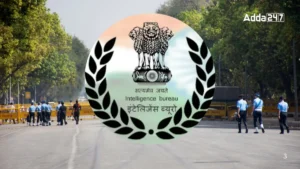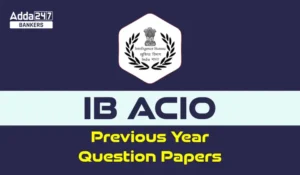Directions (1-5): Read the passage carefully and answer the questions given below it. Certain words/ phrases are given in bold to help you locate them while answering some of the questions.
Nearly 74 years after his death, Gandhi remains the most widely known political leader of modern India. Gandhi’s stature as a major historical figure was confirmed by his successful non-violent movement against British rule in India. Yet, what makes Gandhi so relevant and meaningful for our world is that his political legacy and his philosophical significance continue to inspire millions of people around the globe — to fight against inequality, injustice and historical wrongs. For Gandhi, politics was essentially an ethical mode of conduct. He never pretended to be a teacher of truth. However, others took him to be a guru, and there is no doubt that his attempts to encourage people to experiment with the truth were both philosophical and pedagogical. Therefore, as a practitioner of empathetic humanism and a pluralist thinker, Gandhi was an exemplar of a lifelong process of listening and learning. He actually played the role of an exemplar in prescribing “patience” as a means to understand and approach the other. The dialogical nature of Gandhi’s culture of patience finds its roots in the idea of epistemic humility as a necessary methodology in approaching and understanding other cultures and religions.
As such, the entire Gandhian thought in the realm of religion and politics revolves around this concept of epistemic humility. That is why Gandhi had a profoundly ethical view of religions. Gandhi believed that all individuals irrespective of their religion, race and culture had the right to self-governance. Accordingly, what we can call the Gandhian moment of Swaraj was actually for him constant experimentation with modes of cross-cultural and inter-faith understanding and dialogue. In other words, the capacity to engage constructively with conflicting values was an essential component of Gandhi’s practical wisdom and empathetic pluralism. As a matter of fact, Swaraj as a space of self-realization was where the ethical and the political joined in the Gandhian political philosophy. In other words, maturity for Gandhi was a state of mind and a mode of being, where one had the capacity to form one’s life in a social sphere.
It was on the basis of this act of maturity that Gandhi established his political anthropology and pedagogical premises. He believed that autonomy formed by a mature judgment prepared a life according to morality. Gandhi, therefore, approached pragmatic politics as a form of character-building and not necessarily a struggle for getting elected or grasping power. Gandhi’s acknowledgment of the moral imperative of maturity and his devotion to democratic transparency continues to distinguish his political psychology from most of the other discourses in Indian and world politics. As such, Gandhi’s suggestion to us in relation to moral excellence and spiritual maturity presents itself at the same time as an invitation to self-respect and self-restraint. Therefore, it goes without saying that by reading Gandhi closely and correctly, we can get to the conclusion that, despite all his shortcomings, his appeal to mature and conscientious politics and nobility of spirit continues to be a strong ethical responsibility to the political issues and challenges of our time. Maybe, that is why, Gandhi remains our contemporary, while he belongs to our future.
Q1. Why did Gandhi see politics as primarily an ethical manner of conduct?
(a) Gandhi did so because he encouraged participants to enjoy the truth.
(b) Because of his philosophical and pedagogical teachings.
(c) Because Gandhi never pretended to be a teacher of truth.
(d) Because it served as a vehicle for combating inequity, injustice, and past evil.
(e) None of these
Q2. The author describes Gandhi as a practitioner of empathetic humanism and a pluralist thinker. What exactly do these terms imply?
(a) Someone who never professed to be a morality teacher.
(b) A universalist philosopher who promoted compassionate human nature.
(c) One who exemplifies a lifelong listening and learning process.
(d) As a technique of comprehending and approaching the other.
(e) A conceptualization of cognitive modesty as a required technique.
Q3. Which of the following statements is/are correct with reference to the information provided in the given passage?
(a) In Gandhi’s political thought, Swaraj was a zone of self-realization where the ethical and the political united.
(b) Gandhi saw realistic politics as a means of developing character rather than a means of getting elected or gaining power.
(c) Gandhi perceived constructive governance as a way of constructing personality and getting elected.
(d) Only (a) and (b)
(e) Only (a) and (c)
Q4. Based on the information in the passage, what was Gandhi’s opinion on religions?
(a) Gandhi had a deeply ethical perspective on religions.
(b) Gandhi thought that religion gives people the ability to rule themselves.
(c) Gandhi saw religion as a source of intercultural discord.
(d) Gandhi viewed religion as a cognitive poverty paradigm.
(e) All are correct
Q5. Choose the most appropriate antonym of the word ‘EXEMPLAR’, as highlighted in the given passage.
(a) paragon
(b) epitome
(c) paradigm
(d) mediocre
(e) None of these
Directions (6-10): In the following passage there are blanks, each of which has been numbered. These numbers are printed below the passage and against each, five options are given. Find out the appropriate word which fits the blank appropriately.
The novel coronavirus pandemic has _______(6)_______the way for a blended teaching-learning approach combining online and offline lessons. Parents, teachers, students and school management need to work together to find solutions. Positive examples have ________(7)_________ from different States such as open-air classes under trees. Despite doubts, there is no better alternative to the safe reopening of schools. The longer children are out of school, the more _______(8)_________ it would be for them to return and learn. Last month, Maharashtra’s School Education Minister Varsha Gaikwad had _______(9)_______ that physical classes will resume in schools across the state on October 4. As per the standard operating procedures (SOPs) issued by the state government for the reopening of schools, it is not ________(10)_______ for students to attend physical classes. If they want to attend, they will have to submit consent letters from their parents.
Q6.
(a) secede
(b) paved
(c) statute
(d) saved
(e) append
Q7.
(a) apparent
(b) ratified
(c) emerged
(d) culminated
(e) descent
Q8.
(a) suffrage
(b) suzerainty
(c) persuade
(d) difficult
(e) transitional
Q9.
(a) legitimated
(b) announced
(c) ratified
(d) arbitrary
(e) enriched
Q10.
(a) mandatory
(b) sanctity
(c) procreation
(d) plurality
(e) dissipation
Directions (11-15): In the given sentences there is an odd one. Find out which sentence is an odd one and rearrange the remaining five sentences in the proper sequence to form a meaningful paragraph and then answer the questions given below.
(A) He continued by stating that now is the time to avoid unnecessary travel and large gatherings, as well as to observe low-intensity festivities.
(B) They are being treated at the hospital and their samples have been sent for genome sequencing.
(C) He informed reporters that more than 100 cases of the novel coronavirus Omicron variant have been discovered so far in 11 states.
(D) The head of the Indian Council of Medical Research (ICMR) also urged people to be cautious due to the rapid spread of the new variant.
(E) When asked if mRNA vaccines were more effective, he indicated they had a larger antibody response but a faster decrease.
(F) The Union Health Ministry’s Joint Secretary, Lav Agarwal, convened a press conference for media coverage of a new virus variant.
Q11. Which one of the following sentences is the odd one out of all the given sentences?
(a) F
(b) C
(c) E
(d) A
(e) B
Q12. Which of the following should be the FIRST sentence after rearrangement?
(a) A
(b) C
(c) D
(d) F
(e) E
Q13. Which of the following should be the SECOND sentence after rearrangement?
(a) E
(b) D
(c) C
(d) B
(e) A
Q14. Which of the following should be the FIFTH sentence after rearrangement?
(a) E
(b) D
(c) F
(d) A
(e) B
Q15. Which of the following should be the FOURTH sentence after rearrangement?
(a) C
(b) D
(c) A
(d) F
(e) B
Solutions
S1. Ans. (d)
Sol. The third line of the first paragraph states that Gandhi’s political legacy and philosophical relevance continue to inspire millions of people all around the world to resist injustice, inequality, and historical wrongs. As a result, we can conclude that Gandhi’s politics was primarily an ethical manner of conduct.
S2. Ans. (b)
Sol. The author describes Gandhi as a universalist philosopher who promoted compassionate human nature. Thus, with reference to the context of the given sentence, option (b) is the right answer choice.
S3. Ans. (d)
Sol. Among the given options, only (a) and (b) are correct with reference to the information provided in the given passage. While statement (c) is incorrect.
For statement (a): Refer to the seventh line of the second paragraph, “As a matter of fact, Swaraj as a space of self-realization was where the ethical and the political joined in the Gandhian political philosophy.”
For statement (b): Refer to the third line of the third paragraph, “Gandhi, therefore, approached pragmatic politics as a form of character-building and not necessarily a struggle for getting elected or grasping power.”
S4. Ans. (a)
Sol. On reading the second paragraph thoroughly, we can infer that only statement (a) is correct with reference to the context of the question. While the rest of the statements are mentioned incorrectly.
S5. Ans. (d)
Sol. Among the given options, only ‘mediocre’ is the most appropriate antonym of the given word. While the rest of the words are synonyms of the given word. Exemplar means a person or thing serving as a typical example or appropriate model.
(a) paragon- a person or thing regarded as a perfect example of a particular quality.
(b) epitome- a person or thing that is a perfect example of a particular quality or type.
(c) paradigm- a typical example or pattern of something; a pattern or model.
(d) mediocre- of only average quality; not very good.
S6. Ans. (b )
Sol. The given sentence states that a blended teaching-learning approach combining online and offline lessons has been made possible by the novel coronavirus pandemic. Therefore, with reference to the context of the concerned sentence, ‘paved’ is the most appropriate filler.
(a) secede- withdraw formally from membership of a federal union.
(b) paved- to make it easier for (something to happen or someone to do something).
(c) statute- a written law passed by a legislative body.
(d) saved- keep safe or rescue (someone or something) from harm or danger.
(e) append- add (something) to the end of a written document.
S7. Ans. (c)
Sol. The given sentence states that positive examples, such as open-air courses under the trees, have set from several states. Therefore, with reference to the context of the concerned sentence, ‘emerged’ is the most appropriate filler.
(a) apparent- clearly visible or understood; obvious.
(b) ratified- sign or give formal consent to (a treaty, contract, or agreement), making it officially valid.
(c) emerged- to come into being through evolution.
(d) culminated- reach a climax or point of highest development.
(e) descent- an act of moving downwards, dropping, or falling.
S8. Ans. (d)
Sol. The given sentence states that the longer a student is out from school, the more difficult it is for him or her to return and study. Therefore, with reference to the context of the concerned sentence, ‘difficult’ is the most appropriate filler.
(a) suffrage- the right to vote in political elections.
(b) suzerainty- a relationship in which one state or other polity controls the foreign policy and relations of a tributary state.
(c) persuade- induce (someone) to do something through reasoning or argument.
(d) difficult- needing much effort or skill to accomplish, deal with, or understand.
(e) transitional- relating to or characteristic of a process or period of transition.
S9. Ans. (b)
Sol. The given sentence states that Varsha Gaikwad, Maharashtra’s School Education Minister, announced last month that physical education classes will resume in Maharashtra schools from October 4. Therefore, with reference to the context of the concerned sentence, ‘announced’ is the most appropriate filler.
(a) legitimated- conforming to the law or to rules.
(b) announced- to make known publicly.
(c) ratified- sign or give formal consent to (a treaty, contract, or agreement), making it officially valid.
(d) arbitrary- based on random choice or personal whim, rather than any reason or system.
(e) enriched- to improve the usefulness or quality of (something) by adding something to it.
S10. Ans. (a)
Sol. The given sentence states that as per the standard operating procedures (SOPs) issued by the state government for the reopening of schools, it is not mandatory for students to attend physical classes. Therefore, with reference to the context of the concerned sentence, ‘mandatory’ is the most appropriate filler.
(a) mandatory- required by law or mandate; compulsory.
(b) sanctity- the state or quality of being holy, sacred, or saintly.
(c) procreation- the production of offspring; reproduction.
(d) plurality- the fact or state of being plural.
(e) dissipation- (with reference to a feeling or emotion) disappear or cause to disappear.
S11. Ans. (e)
Sol. The given paragraph will start with the sentence (F) as it best describes the theme of the paragraph. Now, sentence (F) will be followed by sentence (C) as it further adds to the previous statement made by the Joint Secretary of the Union Health Ministry. Now, sentence (C) will be followed by sentence (D) as it highlights the recommendation made by the head of the Indian Council of Medical Research (ICMR) to be cautious. Now, sentence (D) will be followed by sentence (A) as it further adds to the previous statement made by the ICMR head. Finally, sentence (E) will be the concluding sentence of the given paragraph. While sentence (B) is an odd statement as it does not have any correlation with the remaining sentences. Thus, we can infer that the correct rearrangement of the sentences would be ‘FCDAE’.
S12. Ans. (d)
Sol. The given paragraph will start with the sentence (F) as it best describes the theme of the paragraph. Now, sentence (F) will be followed by sentence (C) as it further adds to the previous statement made by the Joint Secretary of the Union Health Ministry. Now, sentence (C) will be followed by sentence (D) as it highlights the recommendation made by the head of the Indian Council of Medical Research (ICMR) to be cautious. Now, sentence (D) will be followed by sentence (A) as it further adds to the previous statement made by the ICMR head. Finally, sentence (E) will be the concluding sentence of the given paragraph. While sentence (B) is an odd statement as it does not have any correlation with the remaining sentences. Thus, we can infer that the correct rearrangement of the sentences would be ‘FCDAE’.
S13. Ans. (c)
Sol. The given paragraph will start with the sentence (F) as it best describes the theme of the paragraph. Now, sentence (F) will be followed by sentence (C) as it further adds to the previous statement made by the Joint Secretary of the Union Health Ministry. Now, sentence (C) will be followed by sentence (D) as it highlights the recommendation made by the head of the Indian Council of Medical Research (ICMR) to be cautious. Now, sentence (D) will be followed by sentence (A) as it further adds to the previous statement made by the ICMR head. Finally, sentence (E) will be the concluding sentence of the given paragraph. While sentence (B) is an odd statement as it does not have any correlation with the remaining sentences. Thus, we can infer that the correct rearrangement of the sentences would be ‘FCDAE’.
S14. Ans. (a)
Sol. The given paragraph will start with the sentence (F) as it best describes the theme of the paragraph. Now, sentence (F) will be followed by sentence (C) as it further adds to the previous statement made by the Joint Secretary of the Union Health Ministry. Now, sentence (C) will be followed by sentence (D) as it highlights the recommendation made by the head of the Indian Council of Medical Research (ICMR) to be cautious. Now, sentence (D) will be followed by sentence (A) as it further adds to the previous statement made by the ICMR head. Finally, sentence (E) will be the concluding sentence of the given paragraph. While sentence (B) is an odd statement as it does not have any correlation with the remaining sentences. Thus, we can infer that the correct rearrangement of the sentences would be ‘FCDAE’.
S15. Ans. (c)
Sol. The given paragraph will start with the sentence (F) as it best describes the theme of the paragraph. Now, sentence (F) will be followed by sentence (C) as it further adds to the previous statement made by the Joint Secretary of the Union Health Ministry. Now, sentence (C) will be followed by sentence (D) as it highlights the recommendation made by the head of the Indian Council of Medical Research (ICMR) to be cautious. Now, sentence (D) will be followed by sentence (A) as it further adds to the previous statement made by the ICMR head. Finally, sentence (E) will be the concluding sentence of the given paragraph. While sentence (B) is an odd statement as it does not have any correlation with the remaining sentences. Thus, we can infer that the correct rearrangement of the sentences would be ‘FCDAE’.





 IB ACIO Vacancy 2025 Notification Out, ग...
IB ACIO Vacancy 2025 Notification Out, ग...
 IB ACIO Previous Year Papers in Hindi: I...
IB ACIO Previous Year Papers in Hindi: I...
 18th July Daily Current Affairs 2025: सभ...
18th July Daily Current Affairs 2025: सभ...

